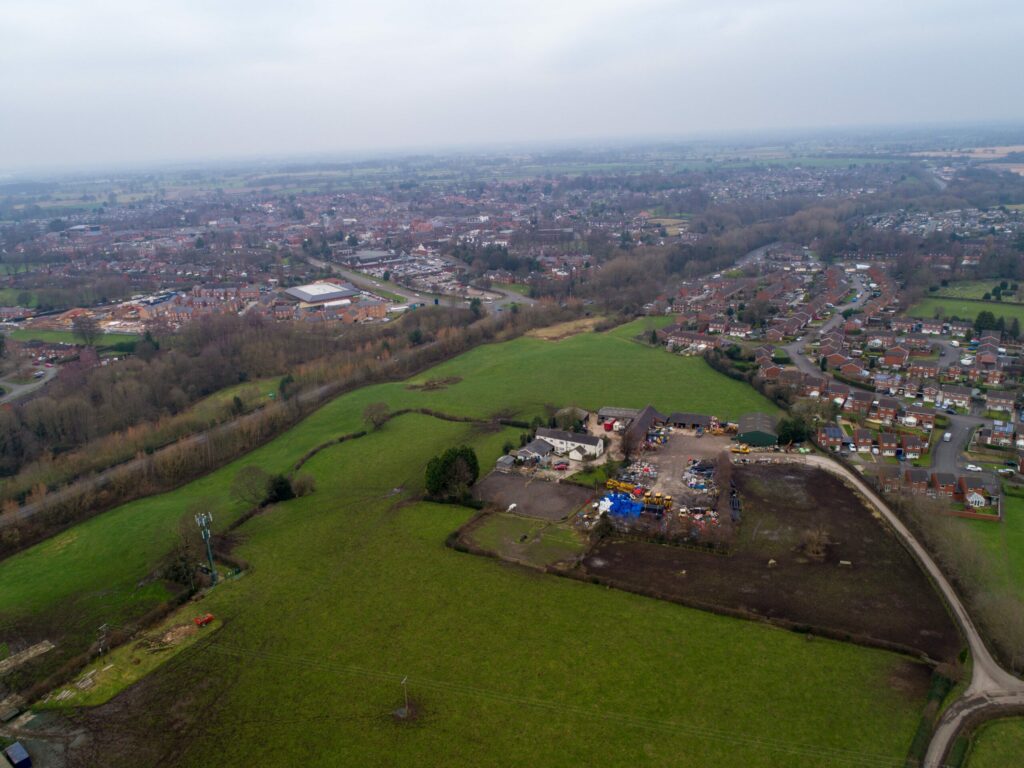Colin Muller, Chief Executive at Muller Property Group takes a closer look at where the political declamation about abandoning the reforms to the planning system leaves the thorny issue of promoting land for housing, and what can be done to meet the current housing shortfall.
As the Conservative Party conference came to a close, it was fairly clear that the government’s long-awaited reforms to the planning system had been shelved. A lot of political rhetoric about the need for housing but nothing much said.
We were delighted to hear reports last year that the government was looking to overhaul the archaic planning system in England.
The much-needed proposals aimed to streamline the planning system, reduce complexity and make the process more democratic, sounded like a breath of fresh air.
In early April this year Boris was on record as saying build, build, build to re-generate the economy.
There was also to be a focus on the design, quality and the sustainability of new homes that included new infrastructure requirements for communities to thrive.
Most importantly however, was that there would be more land made available for development, helping the government to meet its manifesto target of more than 300,000 new homes a year.
The proposals fitted nicely with the Government’s desire to ‘level up’ the country but importantly to release the country from ‘being artificially constrained by a relic from the middle of the 20th century – our outdated and ineffective planning system’.
Outdated planning system
The system was originally designed in the Town and Country Planning Act 1947 and has only been patched up rather than reformed over the decades.
It was widely believed that the outdated planning system is largely to blame for the fact that there are not enough houses in the right places.
This in turn impacts on businesses who can’t grow or create jobs and people who can’t afford to move to areas due to an acute shortage of housing and subsequent high prices.
The net result is that for too long planning decisions have tended to be politically led rather than rules based.
This means that although Local Plans may be in place, with many out of date proposals are determined on a case-by-case basis which in turn, increases risk to those submitting planning applications.
This has a knock-on effect of pushing up the cost of developments and discouraging more land from entering the market.
The arbitrary nature of planning decisions means that more than a third (36%) of major planning applications are determined at appeal and 30% of decisions relating to minor applications are overturned.
This is a clear indication that the process is discretionary and that it makes it hard for builders, land promoters, or developers to commit to the expense of working up planning applications and making the mounting list of information, surveys, and reports to get validation of an application by the Council.
The issue is further compounded when looking at planning at a local level. Although there is a statutory obligation to have an up-to-date Local Plan in place, only 50 per cent of the 343 local authorities do (as of June 2020).
With Local Plans typically taking seven years to develop, sadly policies are largely out of date by the time they are adopted.
Political U-turn
It seems that the government’s desire to implement these much-needed reforms to the system have now been derailed with the Prime Minister announcing at the Conservative Party Conference that houses ‘should not be built on green fields’ and using inflammatory language such as not wanting to create ‘ugly new homes’ on his watch.
Nothing much has changed then with another U-turn from our politicians!
Many commentators speculate that the government U-turn may be a result of the conservatives losing the Chesham and Amersham bi-election in June which saw the Liberal Democrats overturn a Conservative majority of more than 16,000.
The campaign focussed on the impending HS2 infrastructure changes and concerns about the reforms to the planning system.
Depending how you view it, the issue seems to have been further compounded by the appointment of Michael Gove as a replacement for Robert Jenrick as Housing Secretary. Gove is the MP for leafy Surrey Heath, whose constituents share many of same view as those in Amersham.
So where does this now leave the planning system? It is clear from Government communications over the last 18 months that they share the view that urgent reform to the planning process is now needed if they are to deliver on the manifesto pledge to deliver 300,000 new homes each year.
There are always more pressing problems for Government than the Planning System – like the NHS, education, policing and transport infrastructure.
Their levelling up agenda has been thrown into the mix and is a ‘smoke screen’; I have no doubts that they have an eye to a general election in 18/24 months, and the run-up will mean a tight reign on handing down planning permission on greenfield land.
Despite an out-dated and under resourced planning system and anti-development approach by those working in local authorities, not to mention local politicians, and NIMBY residents, there are now no viable reform plans on the table.
My fear is that the old adage will come true for the government’s housing policy and desire to meet their manifesto commitments: ‘failure to plan housing is planning to fail.’
You can see the full article on Farmers Weekly.
For more information on how we can help landowners with the planning process, contact our land and planning team at 0800 788 0900 or muller@muller-property.co.uk .



